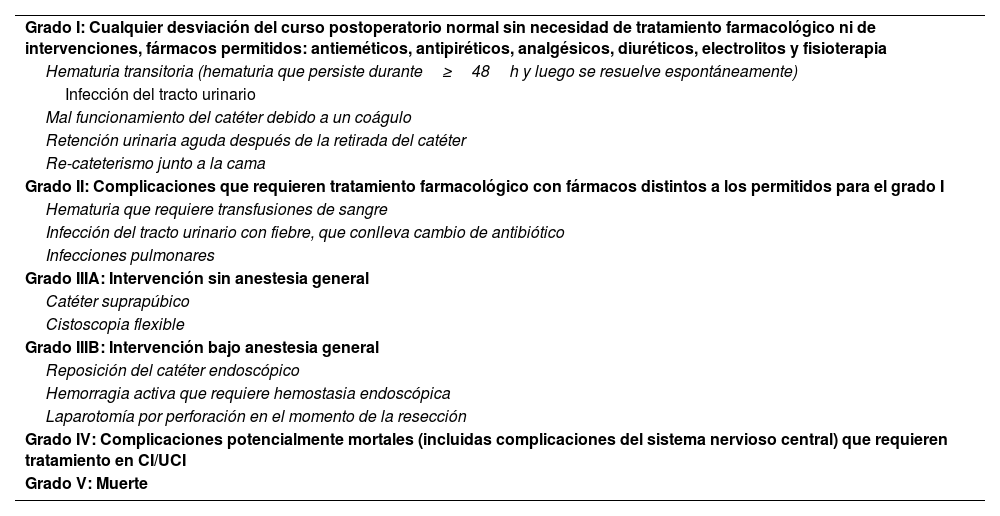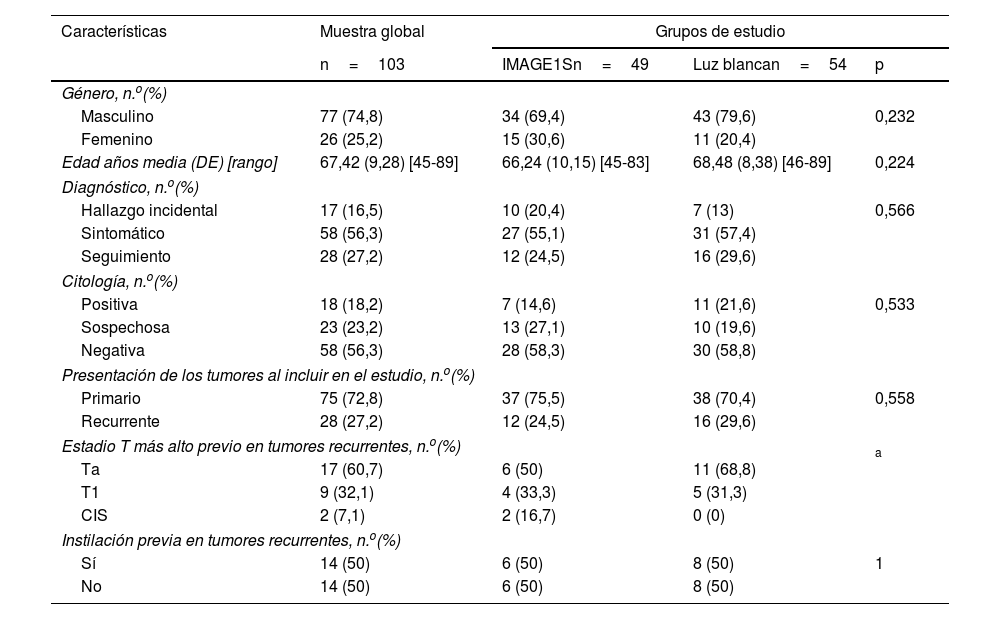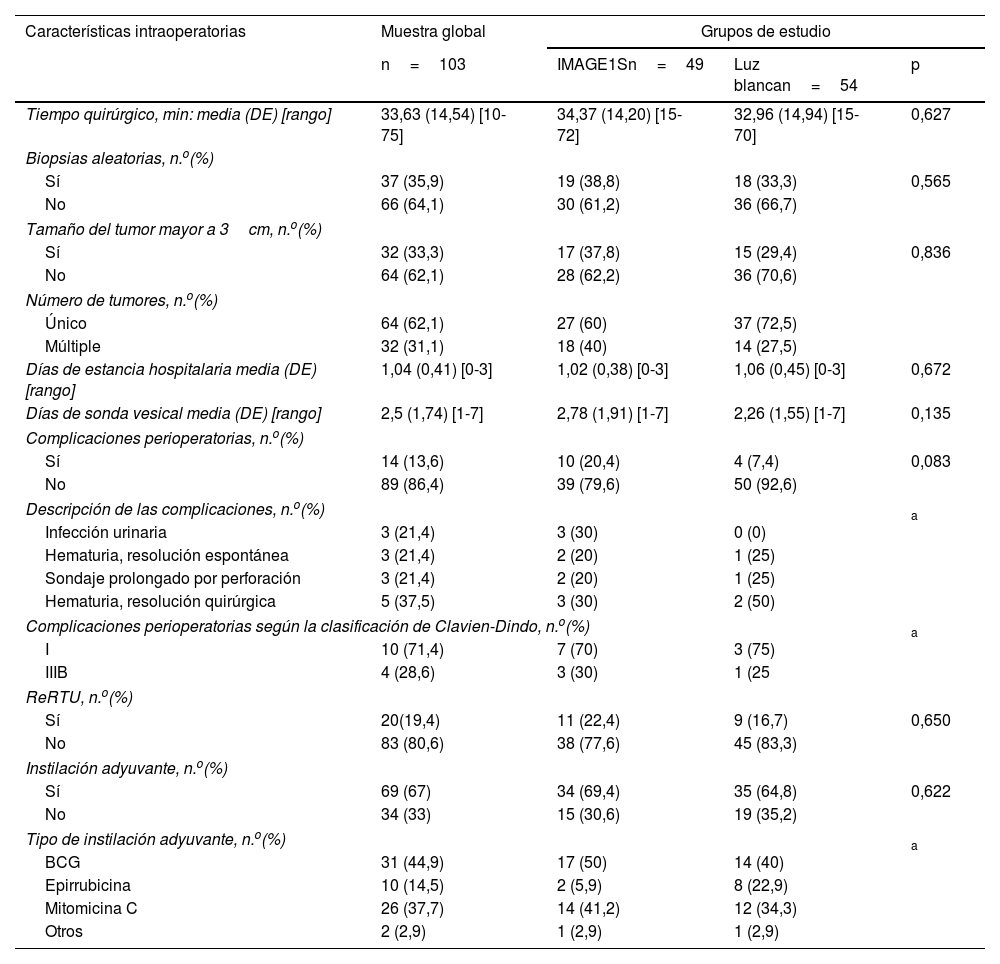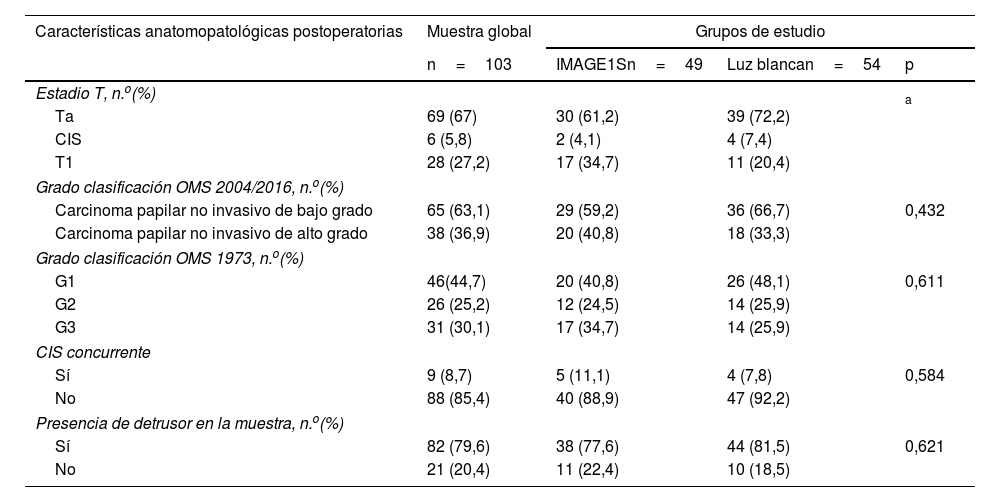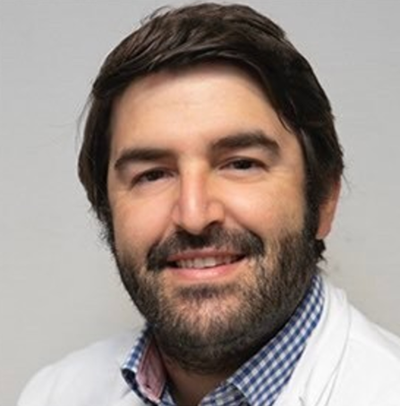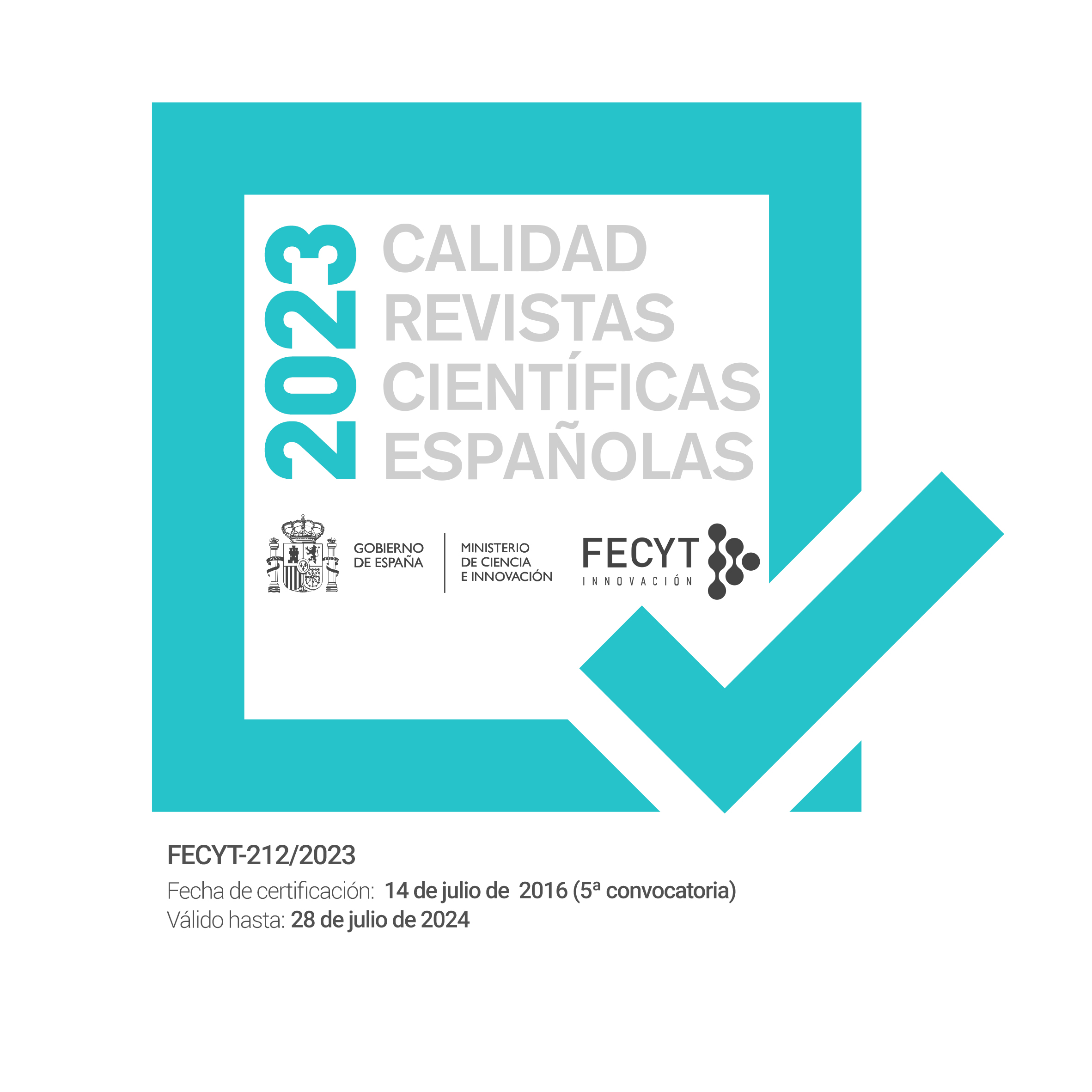La mayor definición de imagen de la tecnología IMAGES1 mejorará la detección de tumores y logrará un aumento de resecciones completas y probable impacto en una reducción de recurrencias.
ObjetivoEl objetivo primario fue comparar la tasa de recurrencia tras resección transuretral de vejiga asistida con IMAGE1S vs. luz blanca; el objetivo secundario fue comparar la tasa de complicaciones según Clavien-Dindo a los 12 meses de seguimiento.
MetodologíaEnsayo clínico prospectivo, aleatorizado, cegado; secuencia 1:1. Se analizaron las tasas de recurrencia y complicaciones según Clavien-Dindo mediante pruebas de chi-cuadrado/U Mann-Whitney, y la supervivencia libre de recidiva mediante curvas de Kaplan-Meier. Se utilizó la clasificación de riesgo de la Asociación Europea de Urología 2021.
ResultadosEl análisis se realizó en 103 participantes (IMAGE1S: 49 y luz blanca: 54, con una tasa de recurrencia del 12,2% y del 25,9% respectivamente [p=0,080]). En el grupo de riesgo bajo e intermedio la recurrencia fue menor en IMAGE1S (7,7 vs. 30,8%; p=0,003) y la supervivencia libre de recidiva fue mayor en IMAGE1S (85,2 vs. 62,8%;Long Rank: 0,021) con una Hazard Ratio del 0,215 (IC 95%: 0,046-0,925). No se observó diferencias en los grupos riesgo alto y muy alto. Las complicaciones fueron en su mayoría grado I y similares en ambos grupos (IMAGE1S 20,4% vs. luz blanca 7,4%; p=0,083).
ConclusionesNo hubo diferencias en la tasa de recurrencia entre grupos. Sin embargo, fue menor la recurrencia en los grupos riesgo bajo e intermedio con IMAGE1S. Además, no presentó aumento de complicaciones perioperatorias.
The improved image resolution of IMAGE1 S technology will increase tumor detection, achieve a greater number of complete resections, and would probably have an impact on the reduction of recurrences.
AimThe primary objective was to compare the recurrence rates of IMAGE1 S vs. white light during transurethral resection of the bladder; the secondary objective was to compare the complication rates according to Clavien-Dindo at 12 months of follow-up.
MethodolgyProspective, randomized 1:1, blinded clinical trial. Recurrence and complication rates according to Clavien-Dindo were analyzed using chi-square/U Mann-Whitney tests, and recurrence-free survival using Kaplan-Meier curves. The European Association of Urology 2021 scoring model was used.
ResultsThe analysis included 103 participants; 49 were assigned to the IMAGE1 S group and 54 to the white light group. Recurrence rates were 12.2% and 25.9%, respectively (P=.080). The low and intermediate risk group had a lower recurrence rate with IMAGE1 S (7.7% vs. 30.8%, P=.003) and a higher recurrence-free survival with IMAGE1 S (85.2% vs. 62.8% Log Rank: 0.021), with a Hazard Ratio of 0.215 (95% CI: 0.046-0.925). No differences were observed in the high and very high-risk groups. Complications were mostly grade I and rates were similar between both groups (IMAGE1 S 20.4% vs. white light 7.4% P=.083).
ConclusionsThere were no differences in the recurrence rates between groups. However, the low and intermediate risk group had a lower recurrence rate with IMAGE1 S. In addition, perioperative complication rates were not higher.










